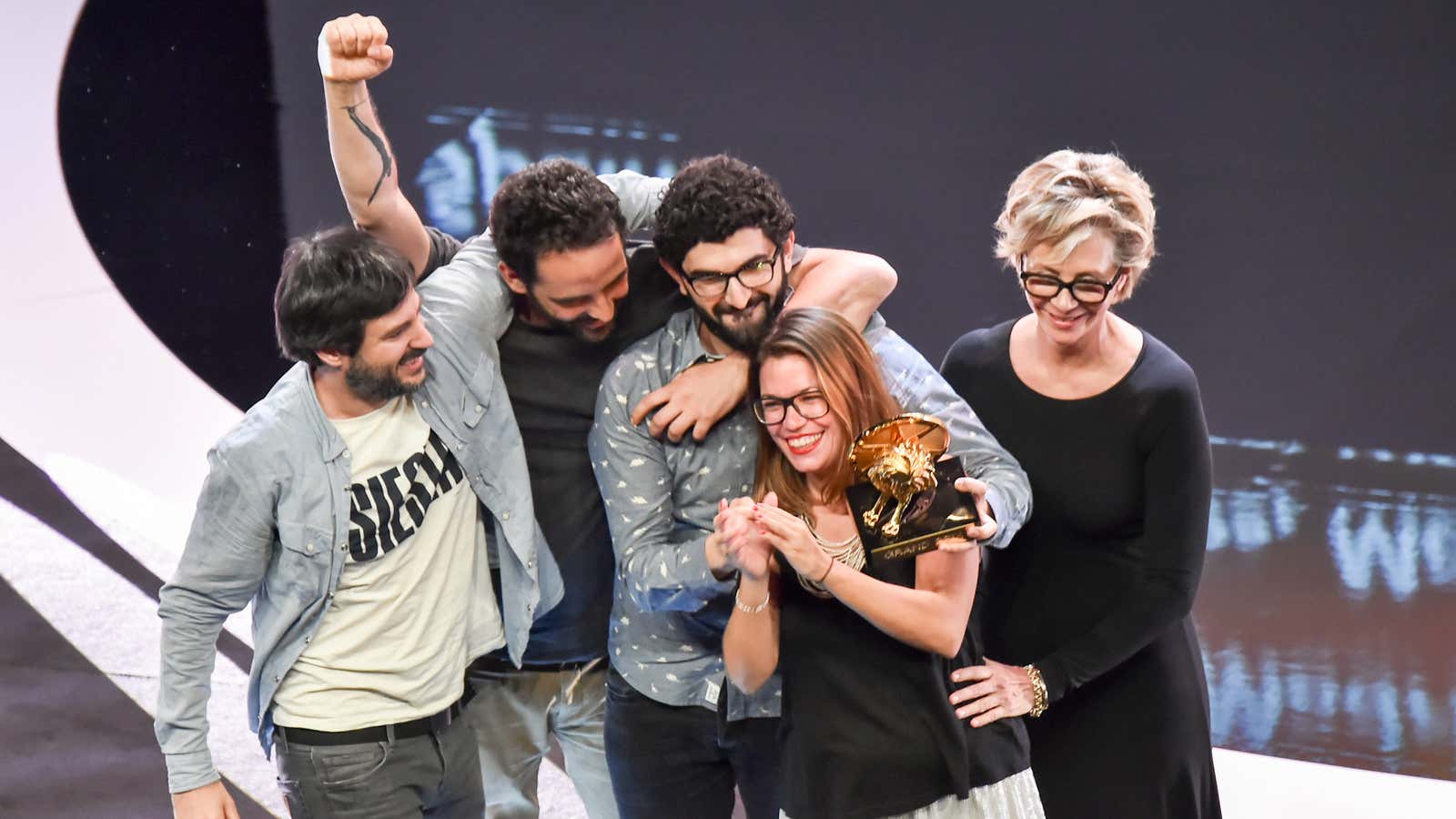Cannes, France
This week, thousands of media and marketing executives, creative directors, and advertising salespeople gathered for the annual Cannes Lions advertising festival in the south of France. Per usual, the rosé flowed freely and helicopters carried A-listers in and out of the port, lined with yachts where ad-tech bros and “creatives” rubbed shoulders with clients and would-be clients. There were also hundreds of panels, meetings, and presentations where power players debated the future of the industry.
“Shuffling the chairs on the deck of the Titanic is a term we use often around the office,” one creative director said at a party thrown by Spotify—which was given an award as “Media Brand of the Year”—between belting out verses as the The Killers played through their set. So are there icebergs on the horizon? Probably—and they’re likely sponsored by Amazon.
Here are three takeaways from our week at the Cannes Lions festival.
Cannes sobers up—emotionally
Duncan Painter, CEO of the festival’s parent company, Ascential, told us he was happy to see less of a “party emphasis” at the event this year. More people in the Palais and fewer on the Croisette suggests that the focus has shifted from media buyers mingling at beach cabanas to creative directors spending time seeing shortlisted work.
But this doesn’t mean Cannes has returned to being a forum for creatives to congratulate each other for creativity’s sake. Just about the only group that boosted their presence at the festival this year—in delegates, activations, and yacht berths—were the consultancies. Accenture Interactive even won its first Grand Prix, a sign that the number crunchers can get creative, too.
And if that wasn’t worrying enough for traditional agencies, Painter says it is “inevitable” that marketplaces like Amazon and Alibaba will grow their presence at future festivals, diverting even more attention from the chief marketing officers who come to Cannes every year to shop around for partners to help them build their brands.
The first rule of authenticity is don’t talk about authenticity
“Authenticity” is a word frequently bandied about the stages of Cannes, but rarely displayed in earnest. At the beginning of the week, Unilever announced it would no longer spend any of its multibillion-dollar ad budget with social media influencers who buy followers, prompting a wider conversation about this relatively new marketing channel.
Social media marketing is broadly praised for its ability to foster an authentic conversation with consumers, but how can consumers trust people whose primary function is to “influence?” Onstage at the Palais, Conan O’Brien threw shade at the idea of creating and controlling one’s personal brand: “My brand is myself, I’ve been working on this brand since the day I was born… it’s not an act… I don’t need a team to explain it to me.”
Why come to Cannes?
If micro-targeting on social media platforms or bulk keyword buying on search engines was a sure-fire way to boost sales and brand recognition, there wouldn’t be much point to this festival. But creativity in advertising and marketing still matters, and that’s what ultimately draws brand leaders to the south of France every summer.
The most effective campaigns “wrap imagination around the data,” an agency creative director told us. Even Martin Sorrell, whose new venture, S4 Capital, is pitched as a disruptive, data-driven challenger to the behemoth he built at WPP, hasn’t given up on the Lions as a marker of creative quality. He has criticized Cannes in the past as an expensive boondoggle, but when we asked whether he expected S4 to enter and win Lions in the future, he responded: “Definitely.”
